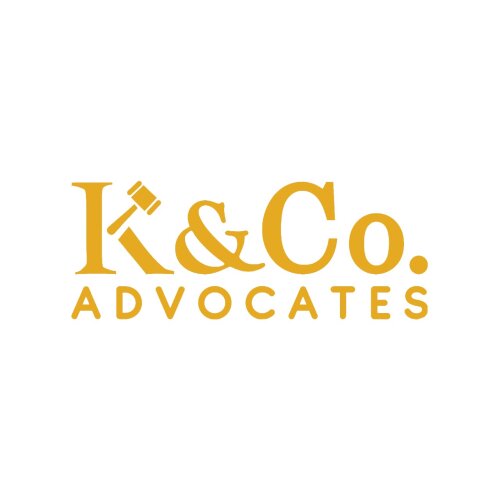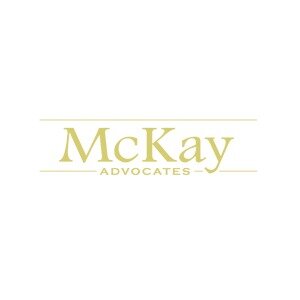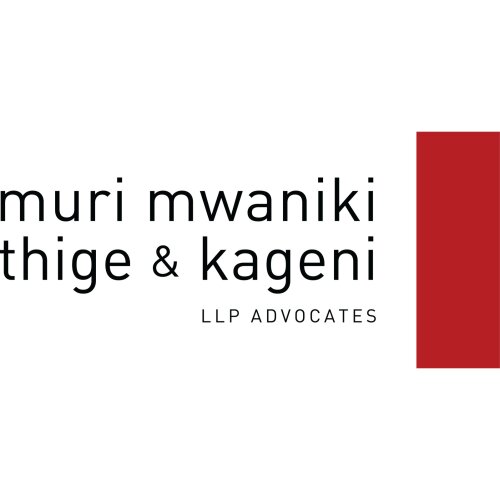About Creditor Law in Nairobi, Kenya
Creditor law in Nairobi, Kenya encompasses the legal framework that governs the rights and obligations of creditors-those entities or individuals who are owed money by debtors. This includes the enforcement of debt repayments, resolving disputes arising out of lending and borrowing, and handling insolvency and bankruptcy cases. Given Nairobi's position as a commercial hub, the city has a dynamic economic environment with numerous local and international businesses, which means creditor issues are often complex and multifaceted.
Why You May Need a Lawyer
There are numerous situations where seeking legal advice in matters concerning creditors is essential:
* Debt Recovery: If you are a creditor attempting to recover a debt owed, a lawyer can assist in navigating the legal processes required, including obtaining court orders when necessary.
* Contractual Disputes: Legal representation can be vital in settling disputes over contractual terms between creditors and debtors.
* Bankruptcy Proceedings: Creditors involved in a debtor's bankruptcy proceedings may need a lawyer to ensure their rights are protected and to negotiate settlements.
* Security and Collateral Issues: If there are disagreements over secured assets, a lawyer can offer guidance on how best to proceed legally.
* Regulatory Compliance: Businesses, in particular, may require legal help to ensure compliance with local financial regulations and laws affecting creditors.
Local Laws Overview
Creditor law in Nairobi is influenced by a variety of statutes and regulations:
* Insolvency Act: This act provides a framework for dealing with individual and corporate insolvency, which is crucial for creditors seeking repayment.
* Contract Act: Dictates the legitimacy and enforcement of credit agreements and the rights both creditors and debtors have under these contracts.
* Consumer Protection Act: Ensures fair trading and protects consumer interests, often intersecting with creditor rights in consumer credit matters.
* Companies Act: Governs the formation and dissolution of companies, impacting how debts are managed during liquidation.
Legal practitioners in Nairobi must navigate these laws to effectively assist creditors in disputes and debt recovery processes.
Frequently Asked Questions
What steps can I take if I've been unable to collect a debt owed to me?
If a debtor fails to repay a debt, you may issue formal demand letters, negotiate payment plans, or ultimately file a lawsuit in court to attempt to recover the amount owed.
Can interest be claimed on overdue debts?
Yes, if your credit agreement stipulates interest on overdue payments, it is enforceable, subject to any statutory limits on interest rates.
Is it possible to seize assets from a debtor?
Seizing a debtor’s assets is possible, but it requires obtaining a court order. Legal proceedings must establish grounds for asset attachment or repossession.
How does the insolvency process affect creditors?
Insolvency proceedings involve the freezing of debtor assets, and creditors may need to prove their claims in court to obtain a share of the debtor's estate.
What should I do if a debtor files for bankruptcy?
You should register your claim with the insolvency practitioner handling the case, and engage with a lawyer to ensure your interests are represented.
Are verbal credit agreements enforceable?
While it is possible to enforce verbal agreements, it’s significantly more challenging. Written contracts provide a clear record, making enforcement easier.
What happens if a company I lent money to is liquidated?
During liquidation, creditors are paid in a specific order of priority. Secured creditors are usually prioritized, while unsecured creditors may receive less.
Can I legally charge late payment fees?
Late fees are enforceable if they are stipulated in the credit agreement, provided they adhere to reasonable standards set by law.
What recourse do I have if a debtor disputes the debt amount?
Disputed debts may be resolved through negotiation, mediation, or litigation, where a court determines the validity and extent of the debt.
Is it necessary to have a lawyer for small claims against debtors?
While it’s not mandatory, having a lawyer can help navigate the procedural aspects and increase the likelihood of successfully recovering the debt.
Additional Resources
Consider contacting the following organizations for assistance with creditor issues:
* The Law Society of Kenya: Offers a directory of licensed lawyers and legal aid services.
* Office of the Attorney General: Provides guidance on legal and legislative matters in Kenya.
* Kenya’s Courts and Judiciary: For information on the legal process for debt recovery and insolvency cases.
Next Steps
If you require legal assistance regarding creditor issues in Nairobi, consider the following steps:
* Consult a Lawyer: Engage a legal expert who specializes in creditor law to assess your situation and recommend a suitable course of action.
* Document Everything: Keep detailed records of all transactions and communications with debtors, which may be helpful in any legal proceedings.
* Understand Your Rights: Familiarize yourself with local creditor laws and procedures to ensure you are fully aware of your rights and options.
Seeking legal advice promptly can be crucial to protecting your interests as a creditor and effectively navigating the complexities of debtor-creditor relations.
Lawzana helps you find the best lawyers and law firms in Nairobi through a curated and pre-screened list of qualified legal professionals. Our platform offers rankings and detailed profiles of attorneys and law firms, allowing you to compare based on practice areas, including Creditor, experience, and client feedback.
Each profile includes a description of the firm's areas of practice, client reviews, team members and partners, year of establishment, spoken languages, office locations, contact information, social media presence, and any published articles or resources. Most firms on our platform speak English and are experienced in both local and international legal matters.
Get a quote from top-rated law firms in Nairobi, Kenya — quickly, securely, and without unnecessary hassle.
Disclaimer:
The information provided on this page is for general informational purposes only and does not constitute legal advice. While we strive to ensure the accuracy and relevance of the content, legal information may change over time, and interpretations of the law can vary. You should always consult with a qualified legal professional for advice specific to your situation.
We disclaim all liability for actions taken or not taken based on the content of this page. If you believe any information is incorrect or outdated, please contact us, and we will review and update it where appropriate.

















